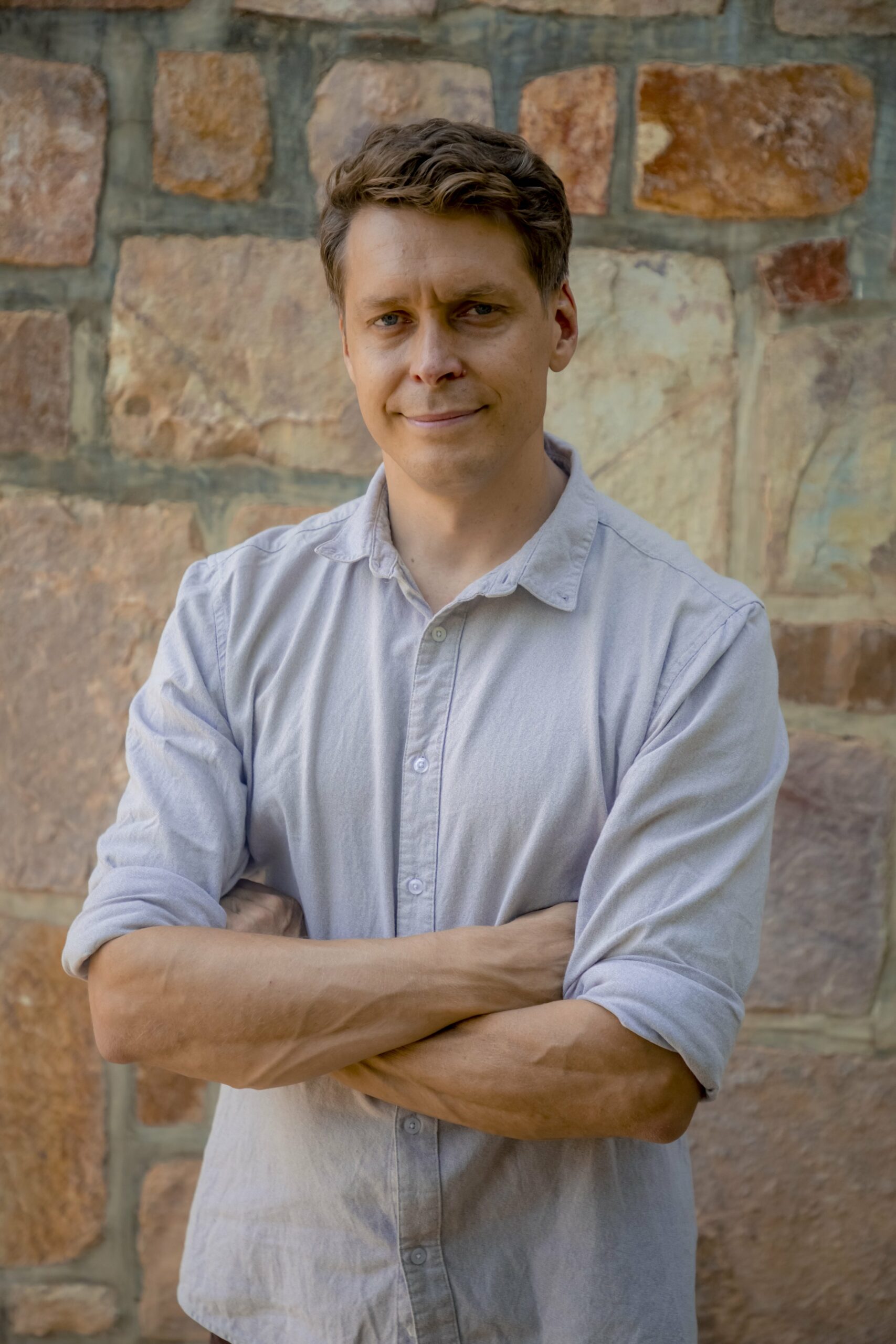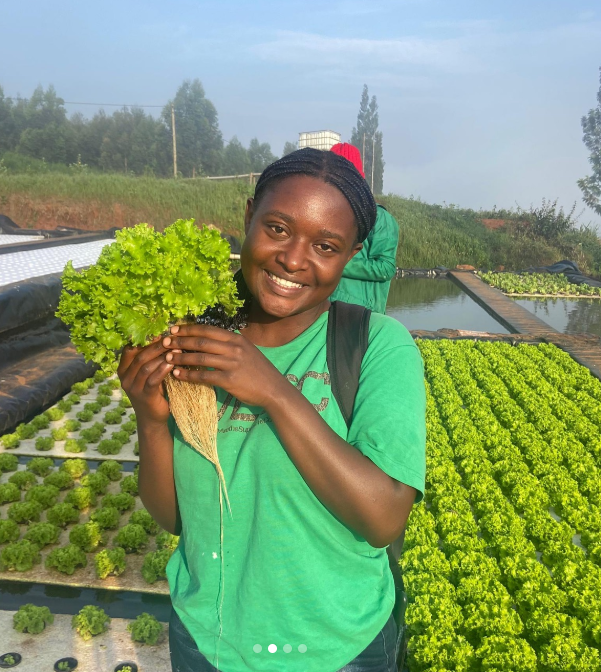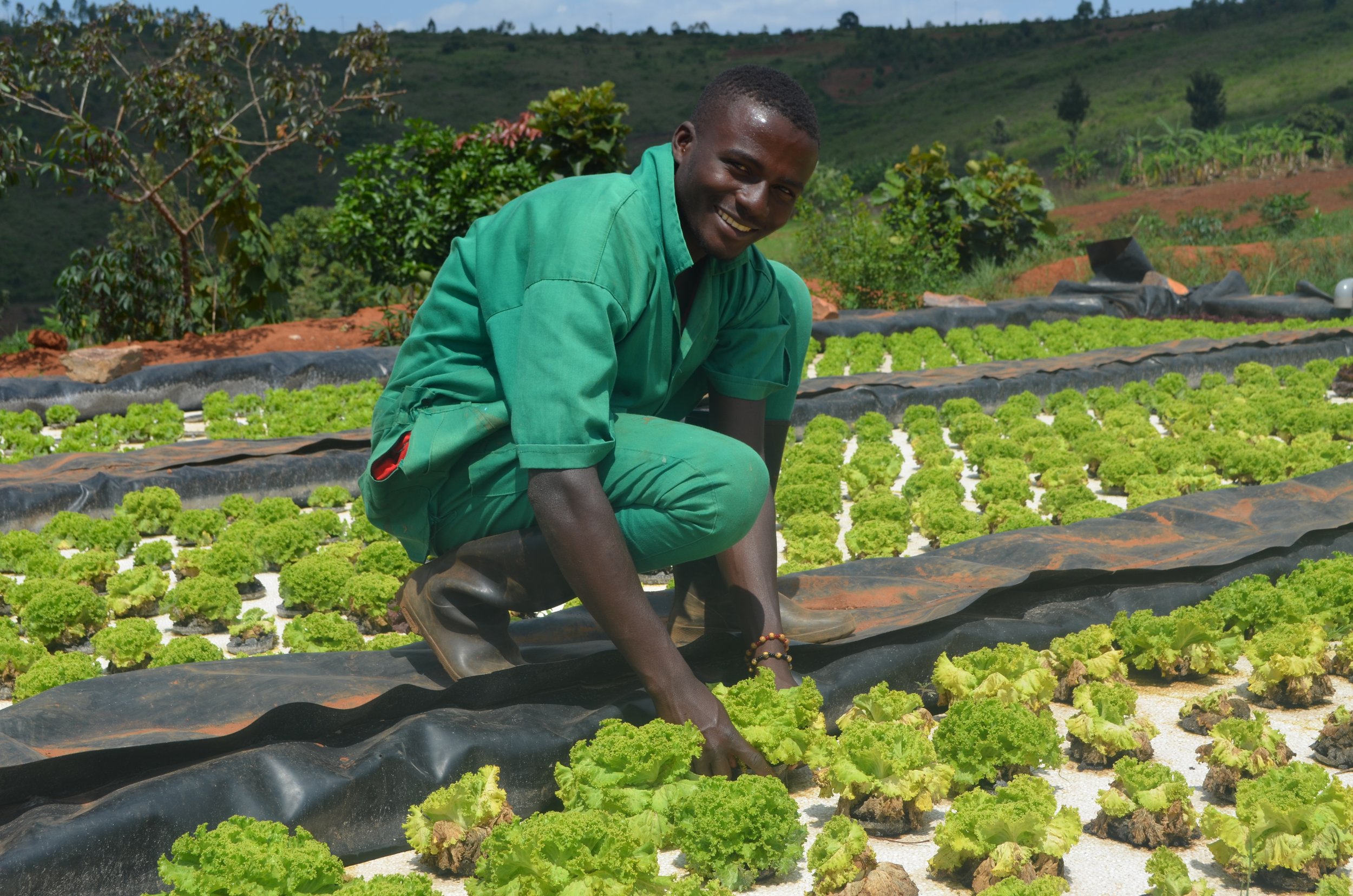Our member, NjordFrey now employs ten people in Rwanda and has built expertise in delivering high-yield systems tailored to East Africa’s context. Here you can meet Lars Hededam, CEO and Co-founder of NjordFrey.
Lars, what is the business of NjordFrey?
– We have developed an innovative aquaponic system combining fish farming with hydroponic plant cultivation in Rwanda. Our system significantly increases fish and crop production while using 95% less water than traditional farming.
This closed-loop system eliminates the need for soil, conserves water, and produces both crops and fish in a single process. By introducing aquaponics, we empower Rwandan farmers to optimize resources and adopt a resilient, eco-friendly approach to food production.

Once built, we provide access to a digital monitoring system to track water parameters, with all data uploaded to our database for continuous monitoring by our team. This ensures full visibility, with real-time data guiding users to maximize production at all times.
In addition to supporting users with the systems we construct, we offer training and consultancy to others interested in learning about this technology or potentially managing their own system.

-What are NjordFrey’s benefits from being a member of A2i?
-We have 3 main reasons for becoming members:
- Collaboration with Danish universities and research institutions
We aim to collaborate with Danish universities and research institutions. Combining fish farming and hydroponic plant cultivation opens countless research opportunities, including biological, technical, and business development aspects. If you’re a scientist looking for a meaningful project, we offer an exciting field with immense potential for the future of agriculture. We welcome interns, researchers, and Ph.D. projects to join us in advancing aquaponics.
In Scotland, where my co-founder is from, we collaborate with over 20 British research institutions. We also work with universities in Malaysia and East Africa. Unfortunately, establishing connections with the right people in Denmark has been challenging, despite aquaponics’ promising results.
2. Funding opportunities
While we have the technology, we lack funding. Based in Rwanda, we cannot access typical Danish funding schemes, nor are we an NGO which most funding is tailored to. We’re actively seeking investors who recognize aquaponics’ vast potential and are willing to support this transformative technology.
3. Advocating for sustainable business in Africa
NjordFrey embodies sustainable technology development in Africa. Our solutions integrate European university expertise with local collaboration, fostering shared growth in Africa. As a member of Access2innovation and a board member of Techvelopment Denmark, I advocate for cooperation across interests to advance sustainable business.
University Researchers: Aquaponics Areas Needing Development
– Here are key research areas that could drive aquaponics forward:
- Bio-Segment
- Fisheries: Research to refine fish farming methods and outcomes.
- Plant Cultivation:
- Deep Water Culture (DWC) systems.
- Testing media beds (soilless systems with granulate).
- Identifying crops that thrive and are marketable.
- Methods for pest and disease prevention.
- AI applications in aquaponics.
- Digital Monitoring Systems
- Advancing water sensors for real-time data collection.
- Developing affordable, efficient sensors and cameras.
- Creating early warning systems for mold and other risks.
- Exploring opportunities for student-led production and businesses.
- Business Development
- Marketing strategies.
- Securing funding.
Also, NjordFrey offers consultancy assistance to universities and research groups/projects.
How do you secure the value chain and postharvest management?
-NjordFrey innovates postharvest management by introducing off-grid solutions for smallholder farmers. Through our Renewable Energy Agro-processing Project (REAP), we integrate renewable energy with sustainable agriculture. In collaboration with the Smart Villages Research Group, we provide energy-efficient agro-processing technologies for rural hubs.
The REAP hubs will offer postharvest facilities, reducing postharvest losses and maximizing farmers’ profits. These hubs should strengthen the agricultural value chains, provide training in sustainable practices, and promote women’s empowerment through targeted support.
What is your New Year status?
-As we enter 2025, our commitment to creating a greener future for Rwanda’s agriculture remains stronger than ever. Supporting aquaponics means investing in a sustainable, resilient, and innovative farming landscape.
Throughout 2024, we focused on engaging diverse stakeholders, deepening our impact, and delivering practical solutions for smallholder farmers—the backbone of our food systems. Our mission as a social enterprise is clear: to build a better future for farming in Rwanda.

